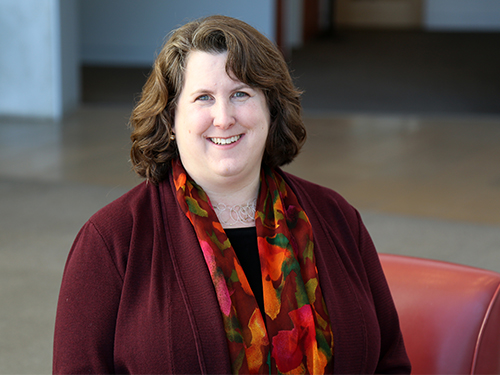A team of researchers at the Heller School for Social Policy and Management has received a four-year, $2.7 million grant from the National Institute on Drug Abuse (NIDA) to study a Washington State-based integrated care model for treating opioid use disorder.
Principal investigator Sharon Reif, PhD’02, senior scientist and deputy director of Heller’s Institute for Behavioral Health (IBH), leads the study, which expands an ongoing evaluation of the state’s “Hub and Spoke” model. Hub and Spoke (H&S) aims to increase access to opioid addiction medications such as buprenorphine, methadone and naltrexone. This integrated care model provides treatment at centralized “hubs” and ongoing maintenance care through “spokes.”
Since 2017, Reif and her team have partnered with the Washington State Health Care Authority's (HCA) Division of Behavioral Health and Recovery to evaluate the implementation and effectiveness of this model. The state initially launched six H&S networks with the goal to increase access to medication-assisted treatment in underserved populations.
This initiative proved so successful that the state has since funded five additional H&S networks focusing on rural, frontier and underserved environments. New funding provided by SAMHSA’s State Opioid Response facilitated this second-generation opioid treatment network model, which expands treatment sites to 17 non-traditional settings such as emergency departments, syringe exchanges, jails and homeless shelters. This approach emphasizes the need for low-barrier access to treatment, particularly in underserved areas.
“Our work is to expand opioid use disorder services as fast as we can safely do it, as the goal is to provide treatment services and reduce overdose deaths,” HCA Deputy Chief Medical Officer Dr. Charissa Fotinos said. “We are grateful for our longstanding partnership with Brandeis and the research on our specific model of expanding treatment.”
Reif hopes that this expanded study will illuminate what makes the H&S model effective at treating opioid use disorder, especially among marginalized individuals who may not seek addiction treatment in traditional ways.
“Washington State is exploring innovative treatment models to ensure that there is 'no wrong door' for accessing opioid treatment,” says Reif. “The state’s flexible delivery system builds upon successful models while incorporating the diverse needs of communities and the people who need care. The low-barrier approach is so important to engage more people with treatment. We are excited to continue our partnership with Washington, to illuminate newer ways to improve care and drive recovery.”
This award is one of 375 grants across 41 states made by the National Institutes of Health (NIH) in fiscal year 2019 to apply scientific solutions to reverse the national opioid crisis. The National Institutes of Health launched the Helping to End Addiction Long-term Initiative, or NIH HEAL Initiative, in April 2018 to improve prevention and treatment strategies for opioid misuse and addiction and enhance pain management. The NIH HEAL Initiative aims to improve treatments for chronic pain, curb the rates of opioid use disorder and overdose and achieve long-term recovery from opioid addiction.
“It’s clear that a multi-pronged scientific approach is needed to reduce the risks of opioids, accelerate development of effective non-opioid therapies for pain and provide more flexible and effective options for treating addiction to opioids,” says NIH Director Dr. Francis S. Collins, who launched the initiative in early 2018. “This unprecedented investment in the NIH HEAL Initiative demonstrates the commitment to reversing this devastating crisis.”
This study represents the latest chapter in Heller’s a long history of behavioral health policy research. “Although the opioid crisis has understandably gripped national attention in recent years, IBH researchers have been studying this phenomenon for decades,” says Dean David Weil. “Sharon Reif and her team are well positioned to contribute powerful new knowledge that will improve addiction treatment systems and seek to close the disparities gap.”

